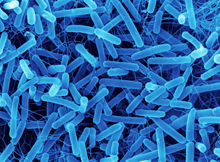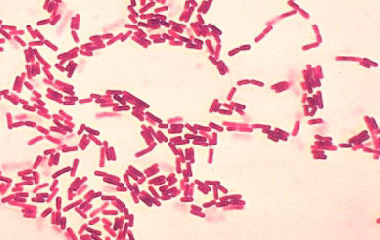


Rapidly Diagnosing Clinical Infections
In the U.S., over 2.2 million people each year have a serious infection caused by antibiotic resistant bacteria. This results in over $20 billion in excess healthcare costs and more than 8 million additional days spent by patients in the hospital. A major contributing factor is the outdated way in which we currently diagnose infections. Current methods rely upon culture, but this process is inherently slow and inefficient, requiring 3-5 days from the time of sampling to a final identification of the causative bacterial species and the antibiotic susceptibility of the isolated pathogen. Even more worrisome, in about 15% of cases cultures fail to grow because of prior treatment with antibiotics or inability to efficiently culture the causative pathogen. In the intervening time, doctors are forced to administer empiric therapy with broad-spectrum antibiotics, which result in side-effects for the patient and an increased rate at which bacteria evolve drug resistance.
We believe that a culture-free molecular approach using next-generation sequencing will allow drug resistant infections to be identified within hours rather than days. We are developing a process to perform pathogen enrichment from clinical material and combining this with the development of computational strategies that take advantage of recent developments in machine learning to predict drug resistance directly from bacterial DNA reads, without the need for assembly or a reference genome. Our approach will result in the ability to identify specific bacterial species and antibiotic susceptibility from a clinical sample in a matter of hours, rather than days. This will be transformative for the practice of medicine, and will result in the reduction of antibiotic resistance and a significant improvement in our ability to care for patients. Find out more information at our spin-out biotech, Day Zero Diagnostics.
